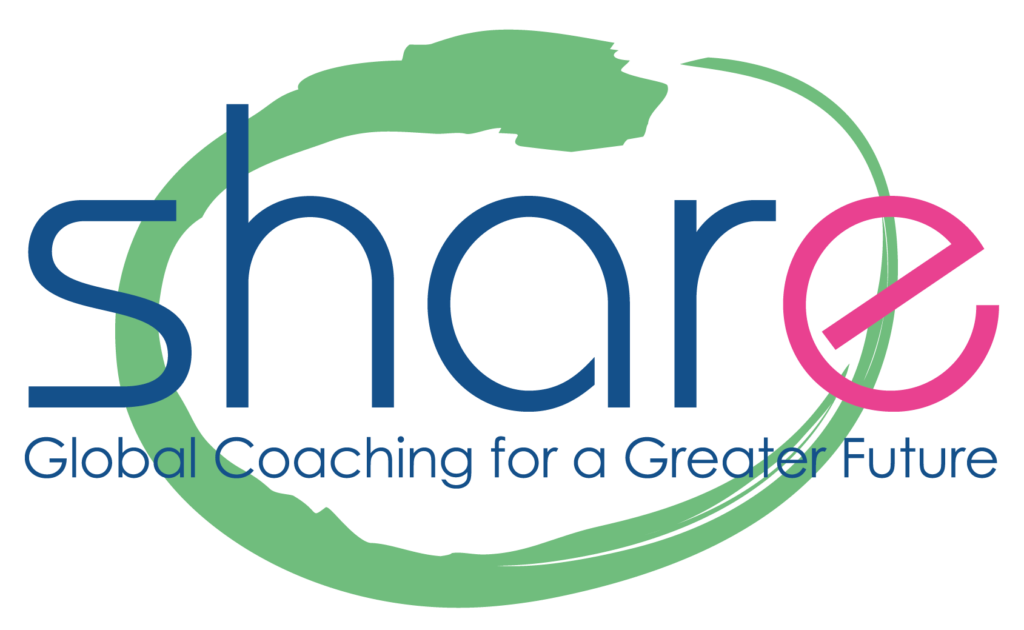Integral Responsibility
Will Schutz[1] describes Integral Responsibility as the choice to voluntarily embrace responsibility in our behaviors, our thoughts, our feelings, our body and our reactions. Things we work towards as well as things that fall into our lap. It’s the capacity to go past blame and shame and consciously decide how to respond to what happens to us. He describes it as a way towards liberation, and we may want to pay attention to his words, especially at a time when our own homes may start to feel a little bit “tight”.
Will Schutz says that the main obstacle to fulfillment, success, and happiness is the belief that when facing an initial stimulus, we feel compelled to respond in a certain way, as we are used to; as if external circumstances had the power to determine our reactions and our destiny. What if, instead, we take a more radical approach to responsibility? What if we could decide to have a different response to what happens to us? What if we could shift our old patterns? Reversing the question, to what extent do you believe you are the creator of your own world?
It is difficult, in these extremely hard circumstances, to ask ourselves this question, and the answer may seem obvious. It’s completely natural to feel overwhelmed by an incontrollable reality we don’t know how to manage, but that’s exactly why it is so important to ask that question right now, to open this space in our minds and let the answer sink in, transform and evolve as we go.
We invite you to be even braver and face the fact that nowadays integral responsibility is not a concept that concerns only us, but increasingly others. We have to be responsible not only for our well-being and the well-being of our loved ones, but for the prosperity of people we don’t know, who are mostly strangers to us.
Being the product of an age that over-valued individual achievement and distinction, we may be caught up in the illusion that we can thrive separately from others, but what is happening now is clearly telling us that this is not the case. In the words of Eric Klinenberg, Professor of Sociology and Director of the Institute for Public Knowledge at New York University: “The Coronavirus pandemic marks the end of our romance with market society and hyper-individualism. We’re now seeing the market-base models for social organization fail catastrophically, as self-seeking behavior makes this crisis so much dangerous that it needed to be. When this ends, we will reorient our politics and make substantial new investments in public goods – for health especially – and public services. We will be better able to see how our fates are linked”.[2]
We are not a single molecule separate from the rest of the organism. Those lonely molecules either die or turn into cancer. Even though it is fundamental to value and understand our own needs and talents, we also need to gain a perspective of our position in the system, to understand how to carry out our function and how to help others fulfill theirs, so that neither we nor they will become those dangerously lonely molecules drifting towards a hazardous destiny.
These concepts may feel foreign at first, and we may be resistant to them, but as Albert Einstein said: “The measure of intelligence is the ability to change”, and at this time, epochal changes that concern the whole community are called for. The changes that we will make will reveal the intelligence that we have developed, not the single, but rather the collective intelligence[3]. Since answers are on a level that is not accessible to the single individual, we need the help of others to find them. We need to co-design our future, and we have to take responsibility for the power we possess, that can be an active driver of change if we decide to use it.
So how do we connect to Integral Responsibility?
Heal your life
If you want to heal the world, you have to heal your life. Look inward to find that which needs attention within yourself, that which is unresolved. Don’t suppress your thoughts and emotions but embrace them compassionately. Our most powerful stand for action is a stand of forgiveness and love of ourselves.
Let go of expectations on others
Integral responsibility means dropping our expectations on others and accepting others’ actions as facts. Reject blame and shame; if you don’t like how things are going or how others are acting, you have other options and the power to make different choices. Focus on yourself and what you can do.
See problems as opportunities
Whenever you are faced with an experience you don’t like, ask yourself why you don’t like it and how you can change it. Feeling that you are a victim, complaining and blaming will leave you trapped and powerless. Remember that you can always choose how to react to experiences.
Embrace stillness as part of your daily life
Devote a few minutes every day to reflect on what you don’t like and your responsibility in creating it. At the same time practice gratitude. Take notice of what is working in your world; appreciating it will help you continue to create positive experiences.
The Power of Imagination
Imagination as in “the capacity to create, evolve, and exploit mental models of things or situations that don’t yet exist”[4], is a crucial skill to help you create new opportunities for evolution and growth.
I think we can all agree that we DON’T KNOW what is going to happen, how the famous “new normal” will look like, how reality is going to shape up after this crisis. Yet with some imagination we will have a chance to define the shape, to outline the form we would like our future to take, rather than just adapting to it: “Pioneers will not only adapt to shifting needs, they will also proactively shape perceived needs and outcomes through innovation, education, and promotional activities”[5] .
Nonetheless we have to admit that is very difficult to nurture imagination in a time of crisis, when the pressure of emergency is calling for our survival mode to kick in, and so much new information, often dramatic, needs to be processed every moment. So, how can we create space for more creative thinking within ourselves and our new reality?
First of all, we need to own our feelings, and address any kind of heightened or uncontrolled physiological and emotional state we are experiencing. Acknowledge what’s going on, but then consciously release the grip those feelings have on you – like hitting a “pause” button – and regain access to a freer and more spacious mind that has the capacity for imagination. This will help you carve time for reflection, because even if lack of time makes this look like mission impossible, without stepping back and reflecting you won’t be able to see the big picture and you won’t be able to access a moldable image of the future, for you to play with. While focusing on the present threat and the emergency measures, let’s be open to thinking about the future, let’s leave some space for that.
Secondly, ask yourself and others open questions. In times of major upheaval, it’s not possible to have immediate answers. Things are shapeshifting constantly, thus the need to start asking new, active questions. Creativity means reaching beyond known alternatives and giving rise to the exploration of unknown territories. Imagine each question as a new colorful box you are opening, waiting to be filled by all the elements that will compose your answer; now is the time to open those boxes, don’t worry about the content, it will come.
Third, have fun! To play around with thoughts and ideas is the way in which we create new connections between things, imagining what’s possible and opening ourselves to inspiration. There is a simple exercise that we use in coaching to expand the view that may sound fun for you to do: imagine taking the perspective of your kid, your cat, a friend, a historical figure or whatever your playful side asks for and look at things from there…how does reality look like? What would you say about it from that point of view? What would you need? Let yourself feel silly because…who cares? You’re the only one who may judge yourself here! Having a laugh, playing with colorful, wild thoughts, impossible (who says so?) ideas will give you some precious lightheartedness and the possibility to release some stress, in addition to opening new viewpoints, as well as giving you a healthy rush of energy! Don’t forget…it’s allowed to be happy, even in the midst of a pandemic.
Fourth, find dreaming colleagues and friends. If dreaming alone is fun, dreaming together is wonderful. We need to facilitate collective imagination, because this way ideas won’t become just bigger and brighter, they will gain the potential to become REALITY. When the game is so big, we need to find new, creative solutions together, uniting our strengths. Create an open, judgement-free zone: encourage unfamiliar, undeveloped, counterintuitive, or countercultural ideas…that will open the way to what’s possible.
Finally, see in this crisis the seed for opportunity. Try to look at this as a great teacher, come to give us a lesson and the space to really rethink our ingrained behaviors. Are we victims of this situation or maybe our way of managing things, looking at things, taking care of things isn’t exactly perfect and can benefit from some reworking? Well, here we are, here’s our chance. As Reeves and Fuller say in their article: “Imagination may seem like a frivolous luxury in a crisis, but it is actually a necessity for building future success.”[6]
A Shift in Perspective, Time for Gratitude
In this re-definition of normality, we are also forced to take on roles that were usually covered by others, as well as to realize what is really pivotal for our basic sustenance. Many jobs or activities that we now rely upon probably weren’t the object of our gratitude in times of more abundance or freedom of movement. The social roles and structures we have been taking for granted are now showing us how fundamental their existence is. Google is setting daily doodles to thank researchers, health professionals, teachers, packaging, shipping and delivery workers, farmers and grocery providers, sanitation workers, public transportation workers, who are keeping us going, often at their own risk, in this time of need.
Moreover, we are forced to take on roles that weren’t demanded of us before, for instance our children’s schooling. Teachers are working hard and doing their best to manage the challenges of online learning, but parents are charged with additional responsibilities these days: to keep their children engaged and on track with school work, while they need to stay committed to their jobs and the home management. And they have to do that with children that are naturally restless and bored by a confined, virtual reality providing a pretty poor outlet for the electric energy running through their young bodies.
This new scenario allows us to access new levels of awareness about others and the role they play. It’s a huge lesson on empathy and an invite to climb down from our solitary perspective, looking at what’s really important for our safety and welfare as a society: health, food, education…How much have we been investing in these? How much consideration to the operators and professionals in these sectors? And more broadly: how much attention have we paid to what now shows itself as paramount?
Re-inventing this new normality of working from home, or re-imagining our career entirely, and staying very close to our families or very far from them, is forcing us to take a deeper look at our priorities and the definition of our boundaries. It is forcing us to reconsider who we are and what we value. At the same time, we start to realize how different everyone’s needs and values are. Coming to respect our exigencies and our quest for purpose, we understand how everyone else has the right to fulfill theirs too. As the days go by, we are starting to grasp how every role and function is central to the running of this complex organism, how we can’t do without others in anything we do or have access to.
We are also now witnessing how rules that we thought couldn’t change have changed; thanks to the emergency we see that many of them are avoidable, shapeable or outright useless. Thanks to this wake-up call, we have the opportunity to realize how our habits and engrained behaviors are crumbling in the name of a renewed awareness and need for evaluation of every step we choose to take. Hopefully this will bring us to stop doing anything mindlessly or automatically, and instead focus our attention on the purpose and the consequences of what we are doing.
In the words of Peter T. Coleman, Professor of Psychology at Columbia University: “Studies have shown that strong, enduring relational patterns often become more susceptible to change after some type of major shock destabilizes them. Now is the time to begin to promote more constructive patterns in our cultural and political discourse. The time for change is clearly ripening[7]”.
By Anna Gallotti and Selika Cerofolini
[1] Will Schutz, The Human Element, Jossey Bass Business & Management Series, 1994
[2] https://www.politico.com/news/magazine/2020/03/19/coronavirus-effect-economy-life-society-analysis-covid-135579
[3] Maya Sigala, Incertitumbre Y Salud Mental, April 2020, https://www.mayasigala.com/2020/04/12/incertidumbre-y-salud-mental/.
[4] Martin Reeves and Jack Fuller, We Need Imagination Now More Than Ever, HBR, April 10, 2020.
[5] Martin Reeves, Philipp Carlsson-Szlezak, Kevin Whitaker and Mark Abraham, Sensing and Shaping the Post-COVID Era, BCG Henderson Institute, April 3, 2020.
[6] Martin Reeves and Jack Fuller, We Need Imagination Now More Than Ever, HBR, April 10, 2020.
[7] https://www.politico.com/news/magazine/2020/03/19/coronavirus-effect-economy-life-society-analysis-covid-135579



